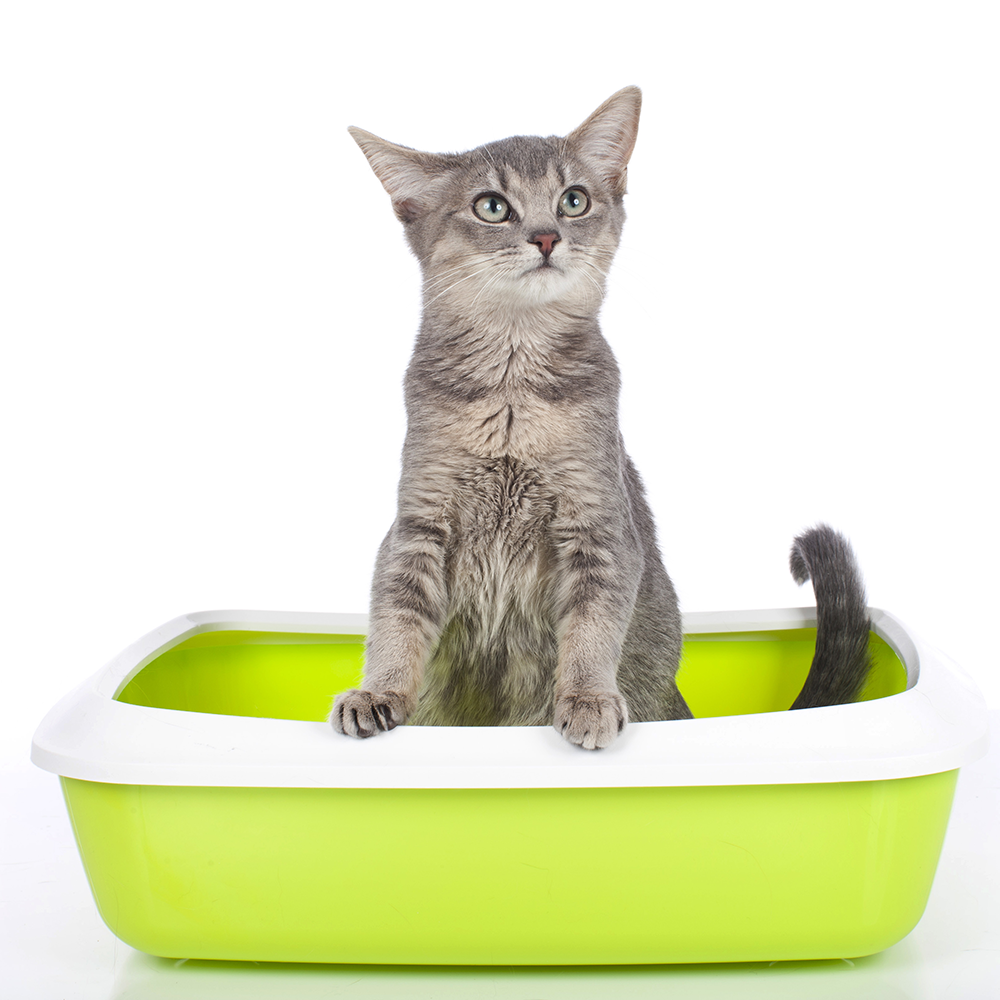
Irritable Bowel Syndrome (IBS) is not well understood in cats. There are many articles and scientific papers on the web and some may apply to your cat’s circumstances. The main symptoms of IBS are chronic, occasional diarrhea, defecating more than once a day, small feces with mucus and sometimes constipation. Typical symptoms of IBS include bloating, abdominal pain, vomiting and the cat having pain when picked up or when touching the abdominal area. Typical causes may include parasites, neurological issues, stress, abnormal gut motility and dietary deficiencies or intolerances.
Screening your cats fecal matter for parasites is a good first step, especially if she is allowed outdoors. Even indoor cats can get parasites by consuming bugs or mice that find their way into your home. However, dietary issues are by far the most common causes of IBS and are the easiest to solve. First, stop feeding your cat carbohydrates and plant material. Your cat is an obligate carnivore and has no nutritional requirement for carbs or plant proteins in her diet. Carbs, vegetable oils and plant proteins are all digested differently than animal proteins and fats and this can upset the balance in a cat’s digestive tract. When a cat eats meat, her digestive tract operates at peak efficiency and fewer problems are likely to develop. If your cat already has a compromised digestive tract, then it is even more important that you feed only animal-based proteins and fats.
Young Again foods typically work well with cats suffering from IBS, it may take 2-3 months before the benefits of a dietary change are seen. Be patient.
Inflammatory Bowel Disease is usually characterized by occasional vomiting, chronic and protracted diarrhea, malnutrition, weight loss and anemia. Some cats display discomfort at all times and others will experience episodes where they appear almost normal. Before diagnosing IBD, your vet must first rule out other health problems, such as parasites, kidney disease and hyperthyroidism.
IBD is considered an immune-mediated reaction by the digestive tract to bacteria, parasite antigens and/or food. Basically, a cat’s immune system is overreacting, causing the production of large numbers of inflammatory cells, which collect in the digestive tract and interfere with the digestion and adsorption of nutrients. If the overreaction is to a specific food source, then changing the food can be a major step in the right direction. Young Again foods work well for IBD patients; however it may take weeks or even months before you see any benefit.